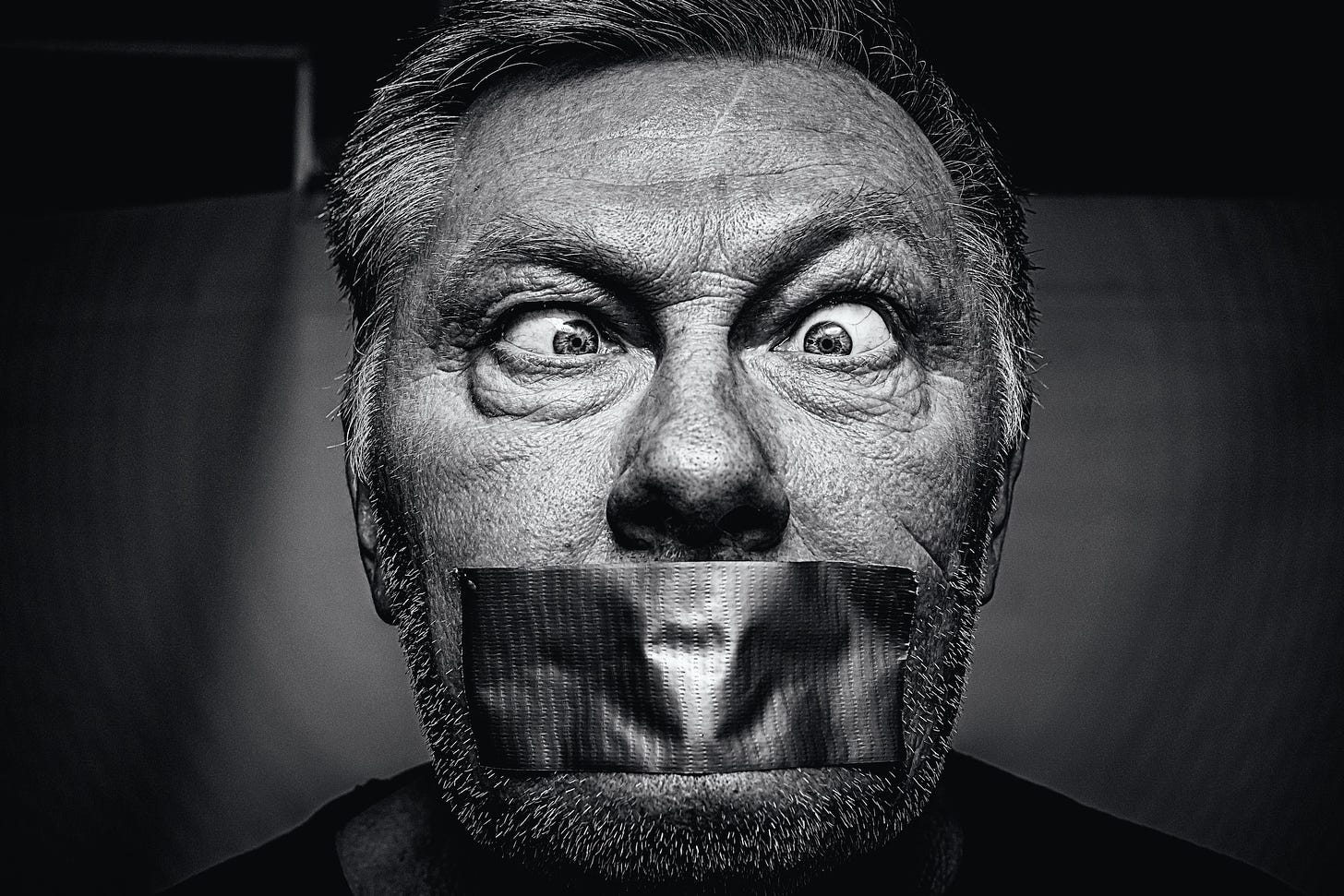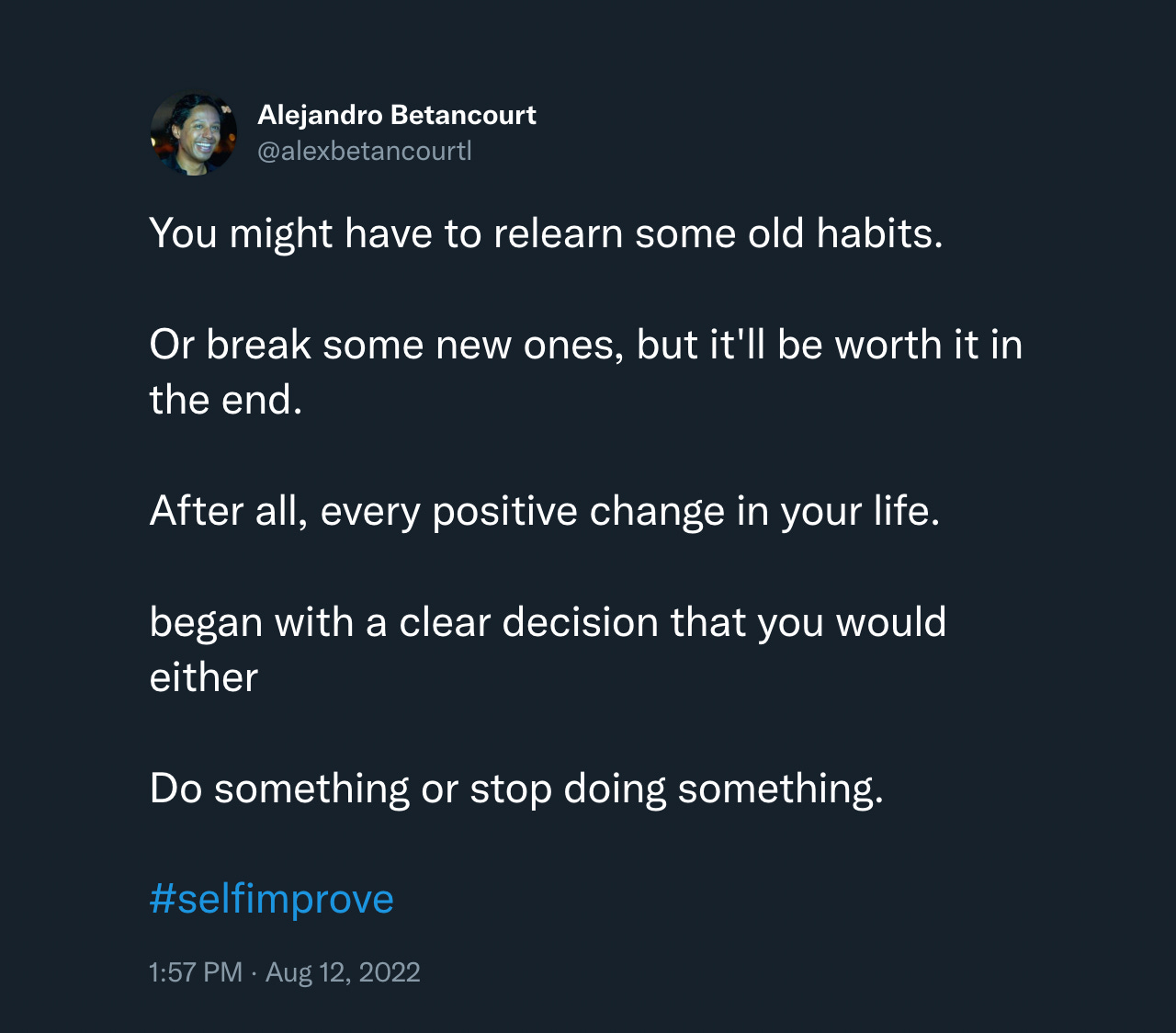The Significance of Radical Acceptance in Life And How It Can Benefit You
Are You Ready to Embrace Your Circumstances?
“The first step toward change is awareness. The second step is acceptance.” —Nathaniel Branden
Why is it so difficult to accept reality? Some people are more difficult to accept than others, but we all have our moments when it feels like the world is conspiring against us.
Whether it’s a difficult situation at work, a fight with a friend, or something more personal, it can be tough to see things for what they are. This is where radical acceptance comes in.
Radical acceptance is the ability to completely and unconditionally accept something without resistance or judgment.
Why is radical acceptance necessary? Because when we resist reality, we suffer. We may not like what’s happening, but fighting against it only makes us feel worse.
By accepting things as they are, we can start to find peace and move on; you must learn to accept things as they are -particularly when they’re not what you want them to be.
Radical acceptance is a term coined by Dr. Marsha Linehan, a psychologist and the developer of Dialectical Behavior Therapy (DBT).
What is Radical Acceptance?
Radical acceptance is the process of accepting reality as it is, without any resistance or denial. The idea behind radical acceptance is to stop fighting what you can’t change and instead focus on what you can change in your life.
Accepting reality for what it allows you to experience; emotions like joy and contentment. You will be able to make better decisions because you are not distracted by how things “should” be but by how they are.
Radical acceptance is not the same as resignation. Resignation is when you give up and stop trying to change your situation.
Radical acceptance is about acknowledging what is happening but hoping things can improve. It is a powerful concept that can help you cope with difficult situations in life.
Radical acceptance is a form of mindfulness. It means paying attention to your thoughts and feelings without judgment. It’s about letting go of the need to control everything and allowing yourself to experience life as it is.
Radical acceptance can be challenging, but it’s worth it. When you’re able to accept reality, you’re less likely to suffer from anxiety and depression. You’re also more likely to find inner peace.
How Can Radical Acceptance Benefit You?
Practicing radical acceptance is accepting things happening in your life, even if you don’t like them. It doesn’t mean you must like what is happening; it just means that you accept it.
There are many benefits to practicing radical acceptance. One of the biggest ones is allowing yourself to heal and move forward. If you can accept something, then there’s no need to constantly dwell on it and feel bad about it. You can let go and move on with your life without feeling guilty about anything or wishing for something different.
The process of practicing radical acceptance is a lot harder than it sounds. Still, you must be ready to commit to this practice for a change. This isn’t the proper practice if you’re not prepared to let go of your resistance and start accepting things.
When you accept reality, you can:
Experience positive emotions like joy and contentment
Make better decisions
Focus on what you can change
Reduce stress and anxiety
Improve your mental and physical health
Radical acceptance is a powerful tool that can help you cope with difficult situations in life. If facing a challenge, try using radical acceptance to find peace and improve your well-being.
If you are struggling to accept something in your life, here are some tips that may help:
Acknowledge your feelings: It is essential to acknowledge how you are feeling without judging yourself. Accepting your feelings will help you move through them instead of getting stuck.
Practice mindfulness: Mindfulness is a way of paying attention to the present moment without judgment. This can help you accept reality because it allows you to see things as they are instead of how you want them to be.
Let go of control: Trying to control everything in your life can be exhausting and frustrating. When you let go of the need to control, you can start to accept what is happening around you.
Seek support: If you struggle to accept something, talking to a therapist or counselor can be helpful. They can provide guidance and support as you work through your feelings.
How to Practice Radical Acceptance in Your Everyday Life
Radical acceptance is a powerful tool for self-improvement. It can help you to get out of the negative thought loops and to stop judging yourself for your mistakes. It can also help you to accept the things that are out of your control and let them be.
The first step towards radical acceptance is learning to observe your thoughts without taking them too seriously. It would be best if you did not believe everything that pops into your head but instead looked at it as a passing thought that might be true or false.
The next step is learning to take responsibility for what you feel, think and do in any given moment without shame or blame. This will make you feel more empowered and in charge of your life.
Finally, you should practice radical acceptance by letting go of the need for things to be perfect. This doesn’t mean you should settle for less but accept life and work with what you have. If you struggle to accept something, try using these tips to find peace and improve your well-being.
“Acceptance looks like a passive state, but in reality it brings something entirely new into this world. That peace, a subtle energy vibration, is consciousness.” —Eckhart Tolle
Examples from Everyday Life Where Practicing Radical Acceptance can make a Difference.
Radical acceptance is fully accepting reality for what it is without judging whether it should be different. It’s about seeing what is without trying to change it. It’s letting go of all the “shoulds.”
When we are dealing with difficult people: many people find themselves in situations where they must deal with someone they don’t like or don’t like back. They might think this person deserves their anger and frustration because of how they act towards them. However, if they practice radical acceptance, they won’t need to waste their time and energy on being angry and frustrated, which will help them move on with their lives.
When facing a difficult situation: we might often find ourselves in a tough spot and feel things should be different. We might even get angry at the problem itself. But, suppose we can step back and practice radical acceptance. In that case, we can see the situation for what it is and work towards finding a solution instead of getting bogged down by negative emotions.
When something terrible happens to us: it could be something as small as spilling coffee on our shirts or losing our keys. When these things happen, it’s easy to get upset and think that the world is against us. Yet, if we take a step back and practice radical acceptance, we can see that these things happen to everyone and are not a big deal. This will help us not to take things so personally and to move on with our day.
These are just a few examples of how practicing radical acceptance can make a difference in our lives. Whenever we feel angry, frustrated, or upset, we can step back and ask ourselves if there is another way to look at the situation.
If we can let go of the need for things to be different than they are, then we can find peace and improve our well-being.
Dialectical Behavior Therapy
DBT is a type of therapy that helps people deal with difficult situations in their lives. It is based on the idea that accepting reality can help you cope with difficult emotions and make better decisions.
DBT focuses on four main areas:
- Mindfulness is practicing paying attention to your thoughts and feelings without judgment. It’s about letting go of the need to control everything and allowing yourself to experience life as it is.
- Distress tolerance is the ability to tolerate pain and distress without making things worse. It’s about learning to accept things as they are, even when they’re not what you want them to be.
- Emotional regulation is the ability to manage your emotions healthily. It’s about learning how to express your feelings in a helpful rather than harmful way.
- Interpersonal effectiveness is the ability to build and maintain healthy relationships. It’s about learning how to communicate and set boundaries in relationships.
Radical acceptance is one of the core concepts of DBT. Radical acceptance aims to help you stop fighting reality and focus on what you can change. By accepting things as they are, you can start to find peace and move on with your life.
Are You Ready for Radical Acceptance?
If you’re unsure whether you’re ready to start practicing radical acceptance, here are a few questions to ask yourself:
Are you tired of feeling unhappy, resentful, or angry about your current situation?
Are you willing to let go of your resistance and allow yourself to experience emotions like joy and contentment?
Are you willing to make better decisions by focusing on things you can control instead of how you wish they were?
Are you ready to move forward with your life without constantly dwelling on the past?
If you answered yes to these questions, then it sounds like you’re ready to start practicing radical acceptance!
Remember, this process might take some time to get used to. But if you’re willing to let go of your need for perfect things, you’ll soon find that life is much more enjoyable. Give it a try and see for yourself!
Some therapists focus on this kind of work and that are trained and qualified to use DBT therapy; if you think you need professional help, that’s an excellent way to go about it.
Mental Health and Self-Care
Radical acceptance is an essential concept in the field of mental health. It is a therapeutic technique that helps people to accept reality and the things they cannot change. This acceptance leads to a sense of peace and relief from suffering.
There are many benefits of radical acceptance of mental health.
For example, it can help to reduce anxiety and depression, improve coping skills, and increase self-esteem. It can also help people to let go of resentments and improve relationships.
Radical acceptance is a powerful tool leading to more peace and happiness.
“Clearly recognizing what is happening inside us, and regarding what we see with an open, kind and loving heart, is what I call Radical Acceptance.” —Tara Brach
Many resources are available online and in libraries if you’re interested in learning more about radical acceptance. You can also talk to a therapist or counselor who can teach you how to apply this concept to your own life.
Remember, the goal of radical acceptance is not to become passive or resign yourself to a difficult situation. It’s about seeing things as they are and finding a way to make the best of them. You’ll be on your way to a more peaceful and fulfilling life when you do this.
Radical acceptance is an important life skill that can benefit you in many ways. It can help to reduce stress and anxiety, improve your mental health, and make it easier to cope with difficult situations.
If you’re ready to start practicing radical acceptance, many resources are available to help you get started. So why not give it a try today? You might be surprised at how much better you feel!
What do you think about this concept? Have you practiced it? Share some experiences with us in the comments below!
© Alejandro Betancourt, 2022. All Rights Reserved.






